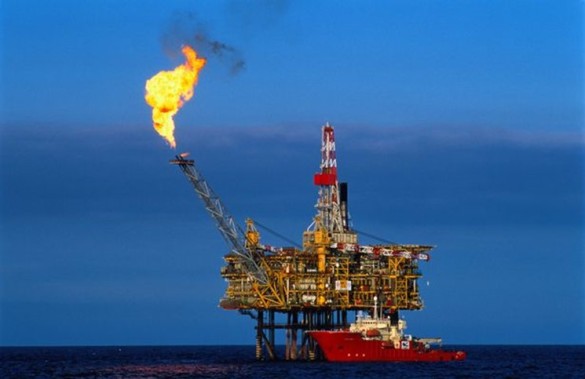Osborne answers call for urgent help for ailing North Sea with tax cuts worth £1.3 billion

By Amy McLellan
Good news for beleaguered North Sea oil producers this week as the UK Chancellor George Osborne, in his last Budget before the General Election, answered the industry’s call for urgent tax cuts. The Chancellor heeded dire warnings that without action the mature North Sea would enter a death spiral, delivering a package of measures that industry watchers said could incentivise another £4 billion of capex, unlocking the development of 500 million boe which at today’s prices are worth £20 billion.
The Budget measures included a ten percentage point reduction in the hated supplementary charge, reducing the headline rate of tax to 50 per cent. The Petroleum Revenue Tax is also being cut by 15 percentage points, which will reduce the rate on older fields to 67.5 per cent.
There will also be a new, simplified Investment Allowance while exploration drilling, which has collapsed to levels last seen in the 1970s, will be boosted by the news that the newly formed Oil & Gas Authority will have £20 million to commission seismic and other surveys on the UKCS. Osborne said the cuts were worth a combined £1.3 billion and were expected to boost North Sea oil production by 15 per cent by the end of the decade.
Sir Ian Wood, author of the influential Wood Review, which highlighted the need to support investment and improve competitiveness even before the rout in the oil price, said the changes were “light at the end of the tunnel” for a struggling industry. He had earlier warned that to 80,000 jobs could be lost if sufficient action was not taken in the Budget.
It seems that action may have been taken. Industry lobby group Oil & Gas UK welcomed Osborne’s “decisive move”, saying the changes would promote investment in the nation’s vital and considerable remaining oil and gas resource.
“Today’s announcement lays the foundations for the regeneration of the UK North Sea,” said Oil & Gas UK’s outgoing chief executive Malcolm Webb, who will be leaving his post on a high. “The industry itself must now build on this by delivering the cost and efficiency improvements required to secure its competitiveness.”
Derek Leith, head of oil and gas taxation at EY, welcomed the news, saying the PRT rate reduction would boost the most mature North Sea field, which had been taxed at a marginal rate of 81 per cent despite falling production and rising integrity costs.
“As these fields typically host key pieces of North Sea infrastructure lowering the overall tax rate for these fields is vital,” noted Leith. “Whilst some in industry may have hoped for a more significant cut in the headline rate there was little likelihood of that happening, particularly as the Investment Allowance will further reduce the effective corporate tax rate for those companies continuing to invest in the sector.”
He said the new measures took “a significant step” towards the creation of a “very competitive tax regime” to attract inward investment into this mature oil basin.
Comments (0)